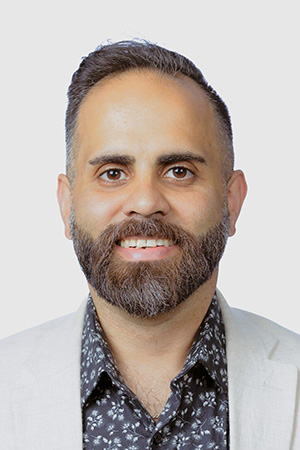
Ahad Behboodi, PhD
- Assistant Professor
- Biomechanics
General Information
Biography
As a researcher and entrepreneur, Dr. Behboodi primarily focuses on designing innovative orthotic and therapeutic devices for motor rehabilitation in the pediatric population, especially those with cerebral palsy (CP). His expertise extends across diverse domains, encompassing biological signal processing, brain-computer interface, movement analysis, artificial muscles, and neuromuscular electrical stimulation. His research comprises three fundamental components: 1) design and implementation of rehabilitation systems to improve gait; 2) investigate the effects of such systems at the functional, biomechanical, and cortical levels; and 3) timely market translation of effective systems. Leveraging the expertise and resources of UNO Biomechanics he is poised to continue his pursuit of enhancing the lives of neurodiverse children through the invention of translational and transformative rehabilitation technologies.
Teaching Interests
Biological (EEG-EMG) Signal Processing, Neuromechanics
Research Interests
1) Comfortable rehabilitation robots: The current focal point is the DE-AFO project, an innovative ankle-foot orthosis (AFO) for neurodiverse children. DE-AFO utilizes noiseless and soft dielectric elastomer (DE) artificial muscles in synchrony with ankle muscles to facilitate natural ankle motion. These artificial muscles operate silently, resembling the softness and contraction patterns of skeletal muscles. These attributes provide comfort and smart functionality, enhancing mobility, and usage duration, in addressing ankle control deficiencies, and improving walking efficiency. 2) Brain-computer interface (BCI)-neurofeedback: Celebrating the intersection of technology and neuroscience, this research project focuses on pioneering EEG-based BCI systems for motor rehabilitation in neurodiverse children. To this end, we utilize advanced signal processing and state-of-the-art deep learning algorithms, coupled with neurofeedback provided by NMES and Robots. Our current focus goal is to integrate BCI into immersive virtual reality (VR) environments, to engage children in the motor training process, and thereby increase the intensity, and quality of the training. 3) Neuro Muscular Electrical Stimulation (NMES) Motor Training: Currently, we are focused on developing an effective NMES system for training gait and improving walking efficiency in children with CP. NMES involves the application of electrical stimulation to muscles or nerves to elicit contractions or affect sensory input, that can be used for motor rehabilitation. Our latest system reads shank kinematics to detect seven phases of gait and has the capability to apply NMES to 12 muscle groups, bilaterally, during each phase.
Education
Ph D, University of Delaware, Biomechanics and Movement Science, 2019
MS, Iran University of Science and Technology, Tehran, Iran, Biomedical Engineering-Bioelectronics, 2011
Scholarship/Research/Creative Activity
Selected Publications
Behboodi, Ahad, Lee, W. A., Hinchberger, V.S., Damiano, D.L.. 2022. Determining optimal mobile neurofeedback methods for motor neurorehabilitation in children and adults with non-progressive neurological disorders: a scoping review. , Journal of NeuroEngineering and Rehabilitation, 19, 1, 1-23.
Behboodi, Ahad, Zahradka, N., Alesi, J., Wright, H., Lee, S.C.. 2019. Use of a novel functional electrical stimulation gait training system in 2 adolescents with cerebral palsy: a case series exploring neurotherapeutic changes, Physical therapy, 99, 6, 739-747.
Behboodi, Ahad, Zahradka, N., Wright, H., Alesi, J., Lee, S.C.. 2019. Real-time detection of seven phases of gait in children with cerebral palsy using two gyroscopes., Sensors, 19, 11, 2517.